By Susan Lutz
The roles of farmers often seem to go to men. Perhaps rooting from generations of roll assignments – the men work the land, the women raise the children and support their husbands. My family’s roots stretch back to farming. I remember the stories of my grandmothers supporting their husbands, doing the chores, and feeding the family and the extra farm hands. Without these women, the farms wouldn’t run. As times change, the farm is changing, too.
Organic lifestyles are creating demands for less pesticides, more local crops, and food grown without GMOs. Farms used to rely on the next generation of children, usually the son, to step up and take over. As large corporations took over acres, they created a mass production and marketing system and small farms couldn’t compete. We watched family farms collapse in the ’80s. Today, women are finding ways to farm with new insight and success.
The US Department of Agriculture reports that, beginning in the 1980s, women farmers were the “fastest-growing sector of the country’s changing agricultural landscape” and they will continue to be well into the next 25 years. The number continues to rise and women farmers are gaining visibility. The economic challenge for farmers has shifted from the tradition of turning the farm over to their children, especially to the boys, to the unknown. Many families turn away from the farm for work, but today more girls and women are choosing to stay. Some enter farming for reasons such as wanting to raise children in the rural lifestyle while others may see it as a profitable way to live. Some simply want to promote organic living. Some women choose sustainable farming and some undertake a larger scale.
Where does a woman, either working alone or with a partner, turn for resources? The growing number of women farmers has created new opportunities in education, management, production, and financial resources. The Internet, blogging, and social media have opened up a new avenue of community to women farmers. With a quick click, any woman can look up how to attack a cucumber beetle without pesticides or when the best time to plant a certain crop is, and they can share stories and develop friendships with other farmers.
Women are taking back the earth. Not from men, but together as partners. My grandmother and grandfather left the farm even before the economy suffered. Over time they gravitated closer to factories and industries offering steady pay. I wonder, if the resources today were available to them, would they have had a chance to grow their farm and adapt with help rather than flee in the hopes of just staying alive and making ends meet. The organic movement is so important to so many women I know. One farm at a time, we may see the land and its caretakers turn over a whole new leaf.
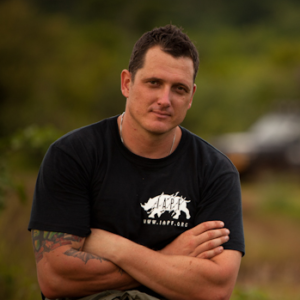 “Green” eco-warriors are working to protect rhinos and elephants, which are on the verge of extinction, as they are killed by poachers for their horns and tusks. My guest this week, Damien Mander, founder of the International Anti-Poaching Foundation, is working to train rangers in the preserves of Africa, via legal and direct tactics, to bring poachers to justice. He is a vegan and believes that animals suffer tremendously when they are raised for consumption, which is also a major contributor to climate change. Damien is starring in a James Cameron film called “The Game Changers”, which you can check out by going to gamechangers.com. For more information on the work of the International Anti-Poaching Foundation, go to iapf.org
“Green” eco-warriors are working to protect rhinos and elephants, which are on the verge of extinction, as they are killed by poachers for their horns and tusks. My guest this week, Damien Mander, founder of the International Anti-Poaching Foundation, is working to train rangers in the preserves of Africa, via legal and direct tactics, to bring poachers to justice. He is a vegan and believes that animals suffer tremendously when they are raised for consumption, which is also a major contributor to climate change. Damien is starring in a James Cameron film called “The Game Changers”, which you can check out by going to gamechangers.com. For more information on the work of the International Anti-Poaching Foundation, go to iapf.org
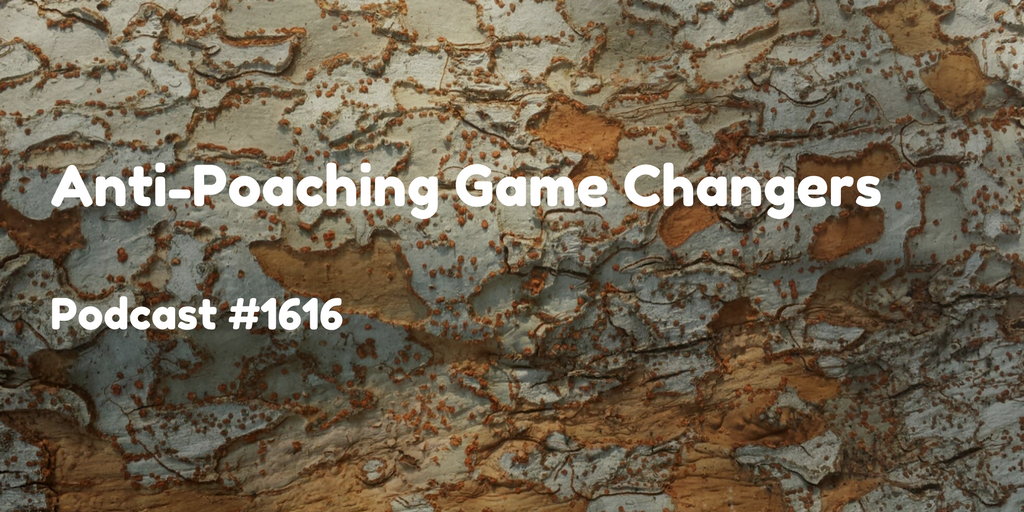
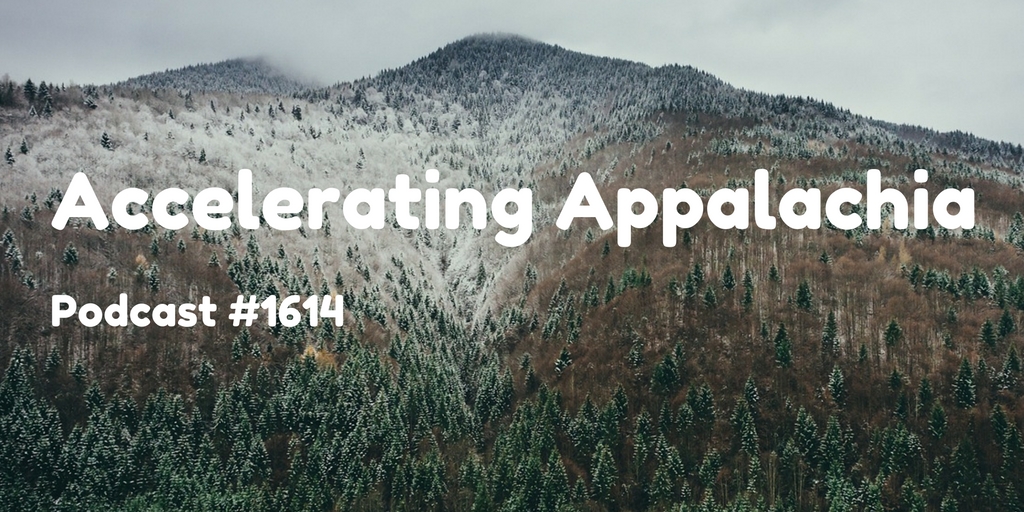
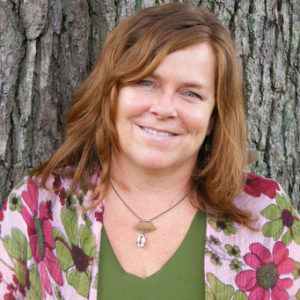 My guest this week is Sara Day Evans, Founder of Accelerating Appalachia, which provides social and economic assistance to nature based and local businesses in the vast region of Appalachia, which spans 12 states and has a population of 25 million people. It is one of the most bio-diverse regions on the globe, and new businesses that are based on food, farming and forests are providing jobs and promoting sustainability. Nature Based Businesses (NBB’s) are part of a movement to protect the earth, and maintain the beauty of the Appalachian region. To quote Ms. Evans “My advice to someone thinking of starting an accelerator or a business is this: Be resilient, stubborn, and focused, and love what you do.” For more info go to
My guest this week is Sara Day Evans, Founder of Accelerating Appalachia, which provides social and economic assistance to nature based and local businesses in the vast region of Appalachia, which spans 12 states and has a population of 25 million people. It is one of the most bio-diverse regions on the globe, and new businesses that are based on food, farming and forests are providing jobs and promoting sustainability. Nature Based Businesses (NBB’s) are part of a movement to protect the earth, and maintain the beauty of the Appalachian region. To quote Ms. Evans “My advice to someone thinking of starting an accelerator or a business is this: Be resilient, stubborn, and focused, and love what you do.” For more info go to 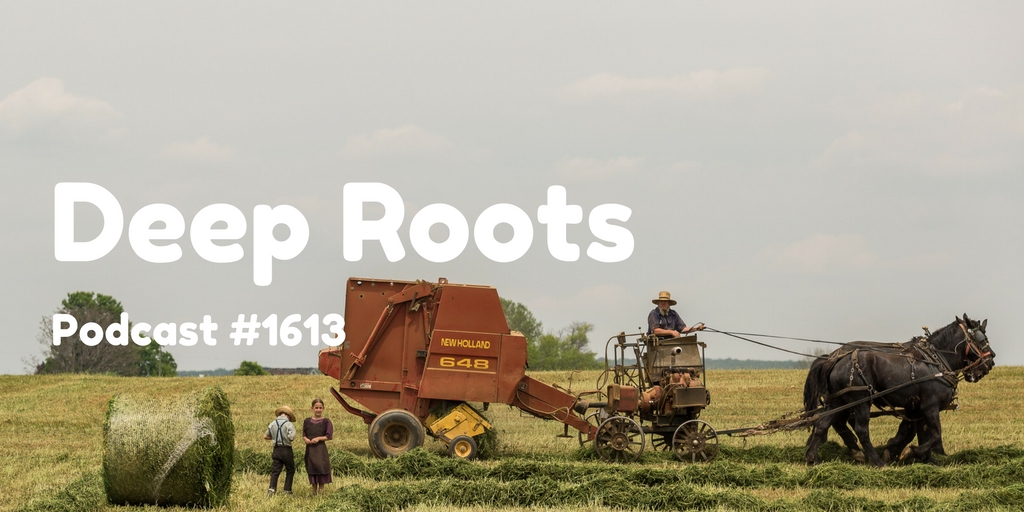
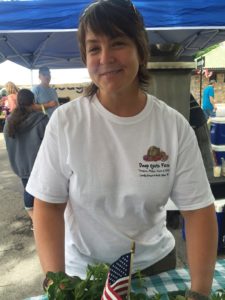 What do organic tomatoes, horn worms and Olympic figure skating legend Dick Buttons have in common? To find out, tune into this week’s show, as Allison Turcan, Stormie Velarde-Hamill and Scott O’Rourke of Deep Roots and DIG Farms, discuss what it takes to run a suburban farm. Learn about WOOFING, and no it doesn’t involve dogs howling, as well as what the difference is between organic and certified organic products. We chat about creepy, crawly and utterly gross worms which attack tomatoes and turns them truly rotten. Local farms supply the booming green markets in the NY metro tri-state area, and Scott, Allison and Stormie are not only growing amazing produce, they are working with kids, via food literacy programs, to educate them about growing delicious and healthy food. For more info go to facebook.com/DIGFarm
What do organic tomatoes, horn worms and Olympic figure skating legend Dick Buttons have in common? To find out, tune into this week’s show, as Allison Turcan, Stormie Velarde-Hamill and Scott O’Rourke of Deep Roots and DIG Farms, discuss what it takes to run a suburban farm. Learn about WOOFING, and no it doesn’t involve dogs howling, as well as what the difference is between organic and certified organic products. We chat about creepy, crawly and utterly gross worms which attack tomatoes and turns them truly rotten. Local farms supply the booming green markets in the NY metro tri-state area, and Scott, Allison and Stormie are not only growing amazing produce, they are working with kids, via food literacy programs, to educate them about growing delicious and healthy food. For more info go to facebook.com/DIGFarm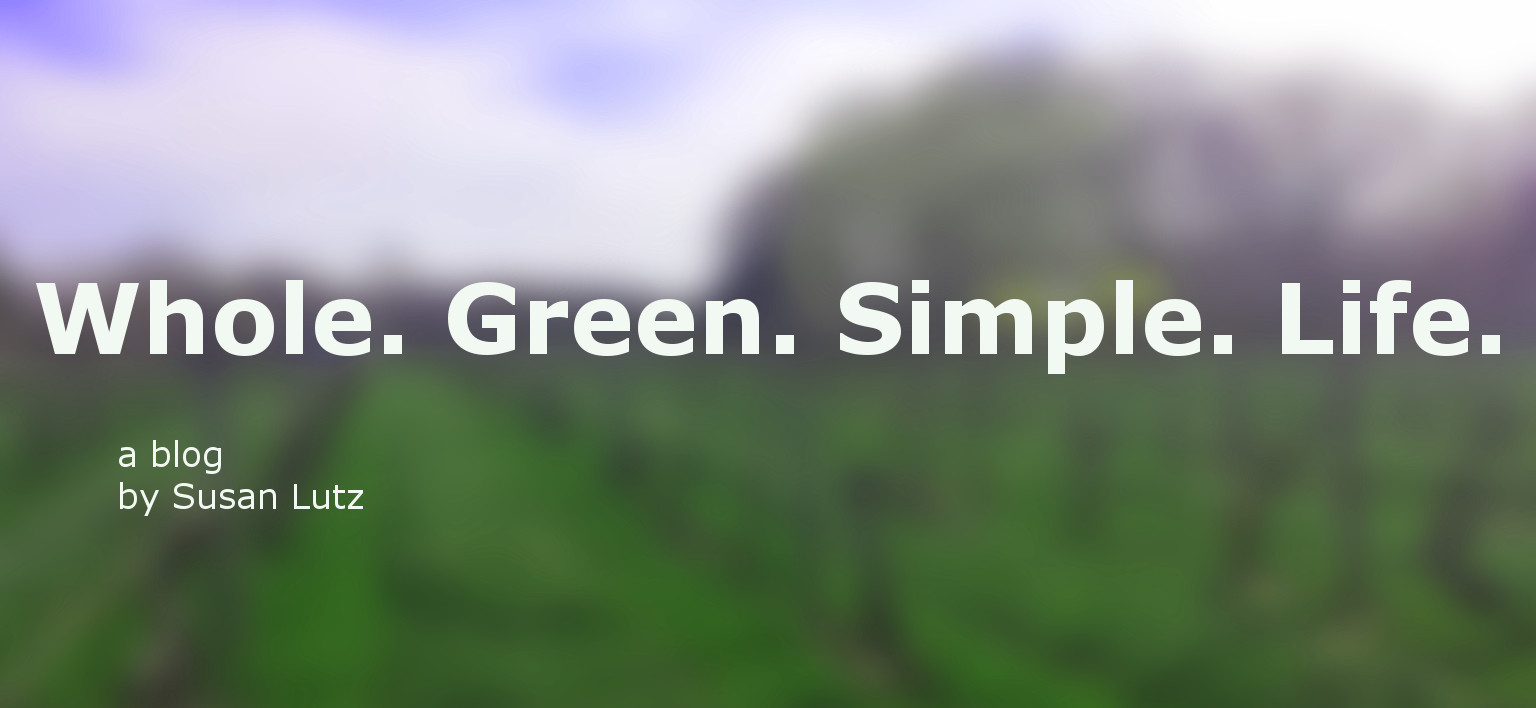
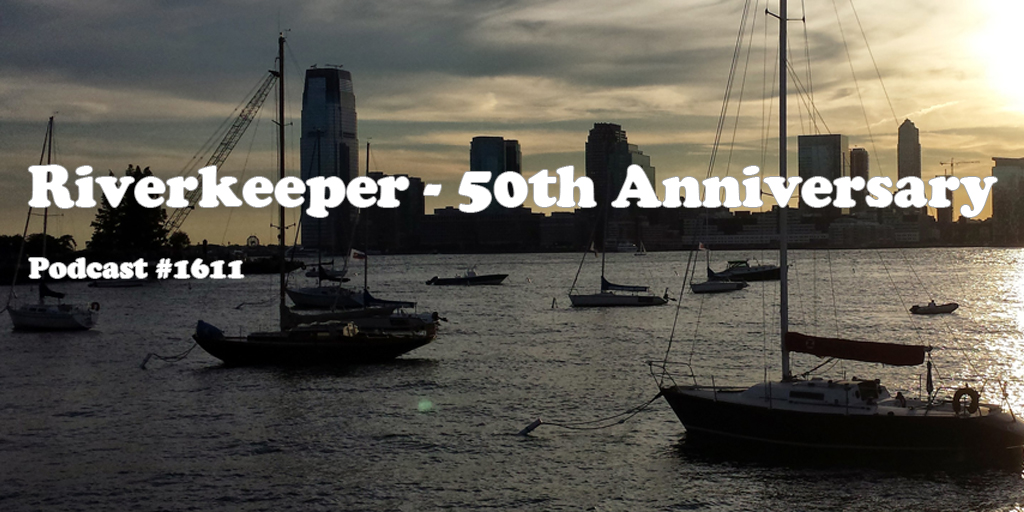
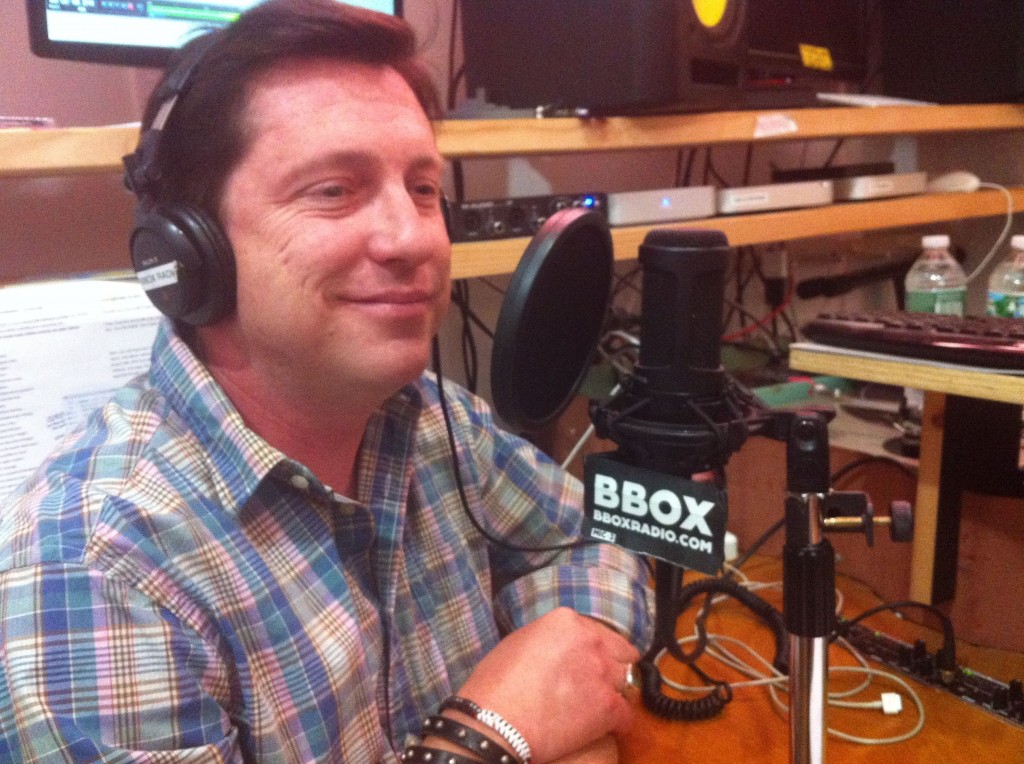 Riverkeeper, the guardian of the water, land and air celebrates its 50th Anniversary this year, and it is fitting to have friend of the show, John Parker, Director of Legal Programs at Riverkeeper, as my guest this week. We discuss all the great work Riverkeeper has done over these last five decades, as well as what they will continue to do to preserve and protect the environment. Keeping the waterways vibrant, and our drinking water clean, is essential to the health and well being of the citizens in New York State and beyond. To find out more about this great organization, go to
Riverkeeper, the guardian of the water, land and air celebrates its 50th Anniversary this year, and it is fitting to have friend of the show, John Parker, Director of Legal Programs at Riverkeeper, as my guest this week. We discuss all the great work Riverkeeper has done over these last five decades, as well as what they will continue to do to preserve and protect the environment. Keeping the waterways vibrant, and our drinking water clean, is essential to the health and well being of the citizens in New York State and beyond. To find out more about this great organization, go to 
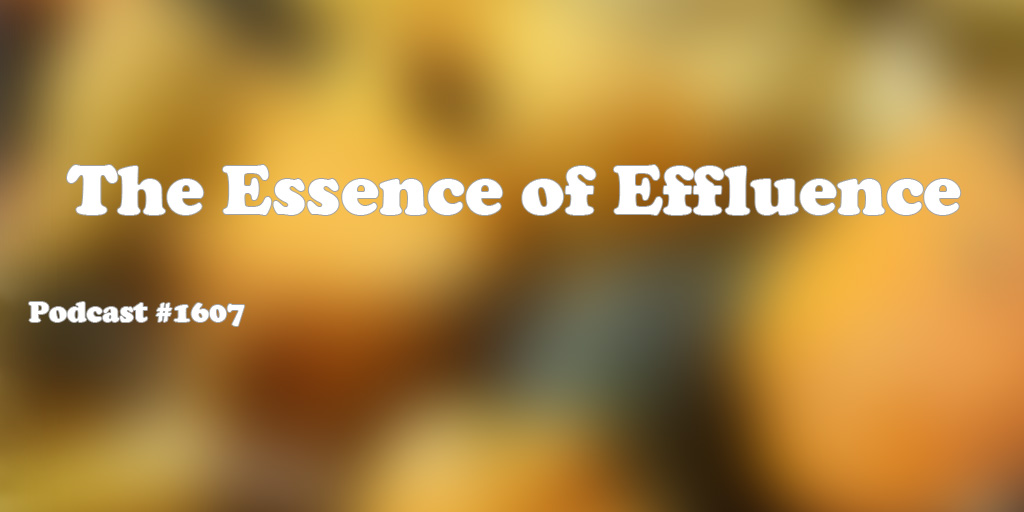
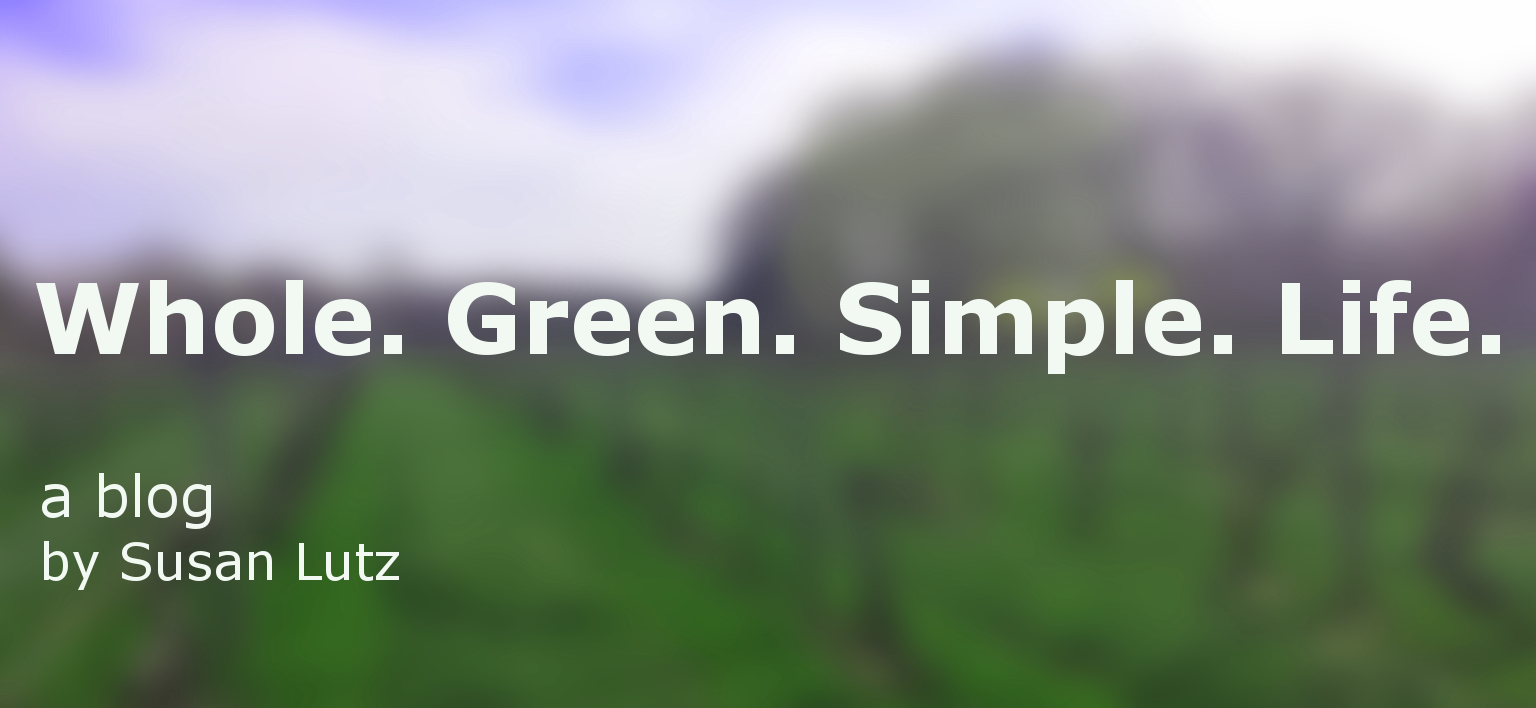

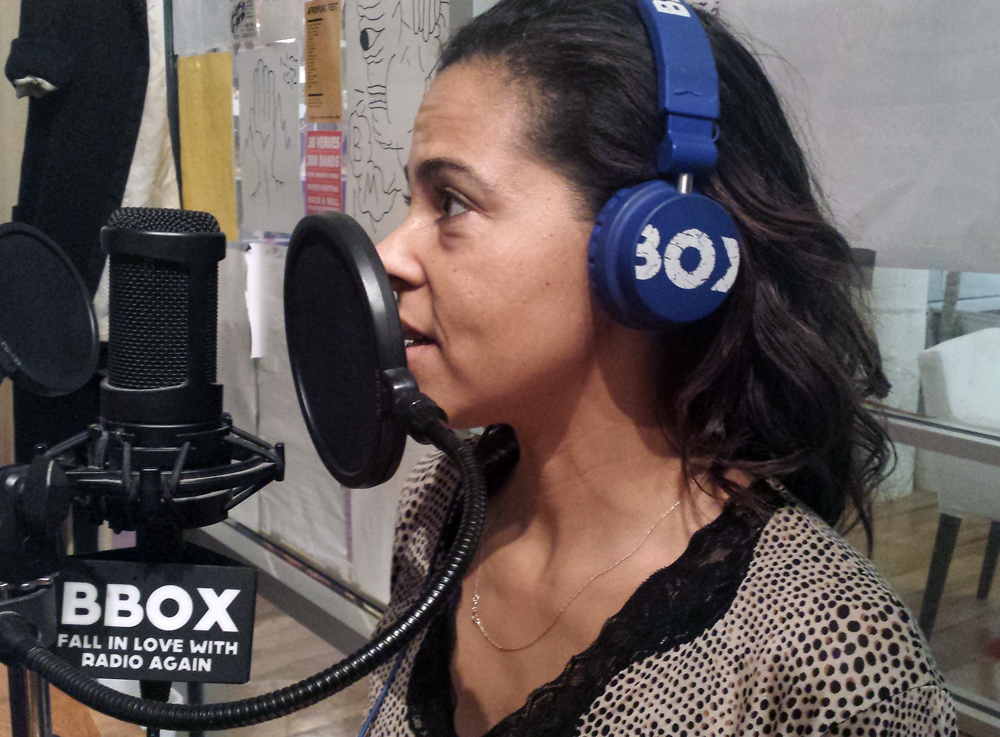 “Human Beings Throw Away Their Greatest Achievements in the Trash” enter my guest this week, Amber Lasciak, designer and founder of REDU NYC, a company which rescues and transforms waste into functional design. It is so very important to reuse, reduce, recycle and reinvent, in order to lower our carbon footprint, and keep waste out of the landfills. #REBORNINTHEUSA. Send Amber a tweet @REDU_NYC
“Human Beings Throw Away Their Greatest Achievements in the Trash” enter my guest this week, Amber Lasciak, designer and founder of REDU NYC, a company which rescues and transforms waste into functional design. It is so very important to reuse, reduce, recycle and reinvent, in order to lower our carbon footprint, and keep waste out of the landfills. #REBORNINTHEUSA. Send Amber a tweet @REDU_NYC
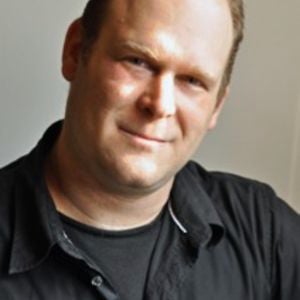 Electric cars are cool, electric cars are fun, electric cars don’t pollute the air we breathe, so why aren’t there more of them on the road? My co-host Brian Horowtiz and I chat about this and other topics, with my guest Seth Leitman, Green Living Guy. Seth is an EV car aficionado, and author of a series of books called the Green Guru Guides. He is working with the Solarize initiative in Westchester County to promote solar energy. Seth will be lecturing and touring colleges this Spring, to spread the word about green living. For more information go to greenlivingguy.com
Electric cars are cool, electric cars are fun, electric cars don’t pollute the air we breathe, so why aren’t there more of them on the road? My co-host Brian Horowtiz and I chat about this and other topics, with my guest Seth Leitman, Green Living Guy. Seth is an EV car aficionado, and author of a series of books called the Green Guru Guides. He is working with the Solarize initiative in Westchester County to promote solar energy. Seth will be lecturing and touring colleges this Spring, to spread the word about green living. For more information go to greenlivingguy.com